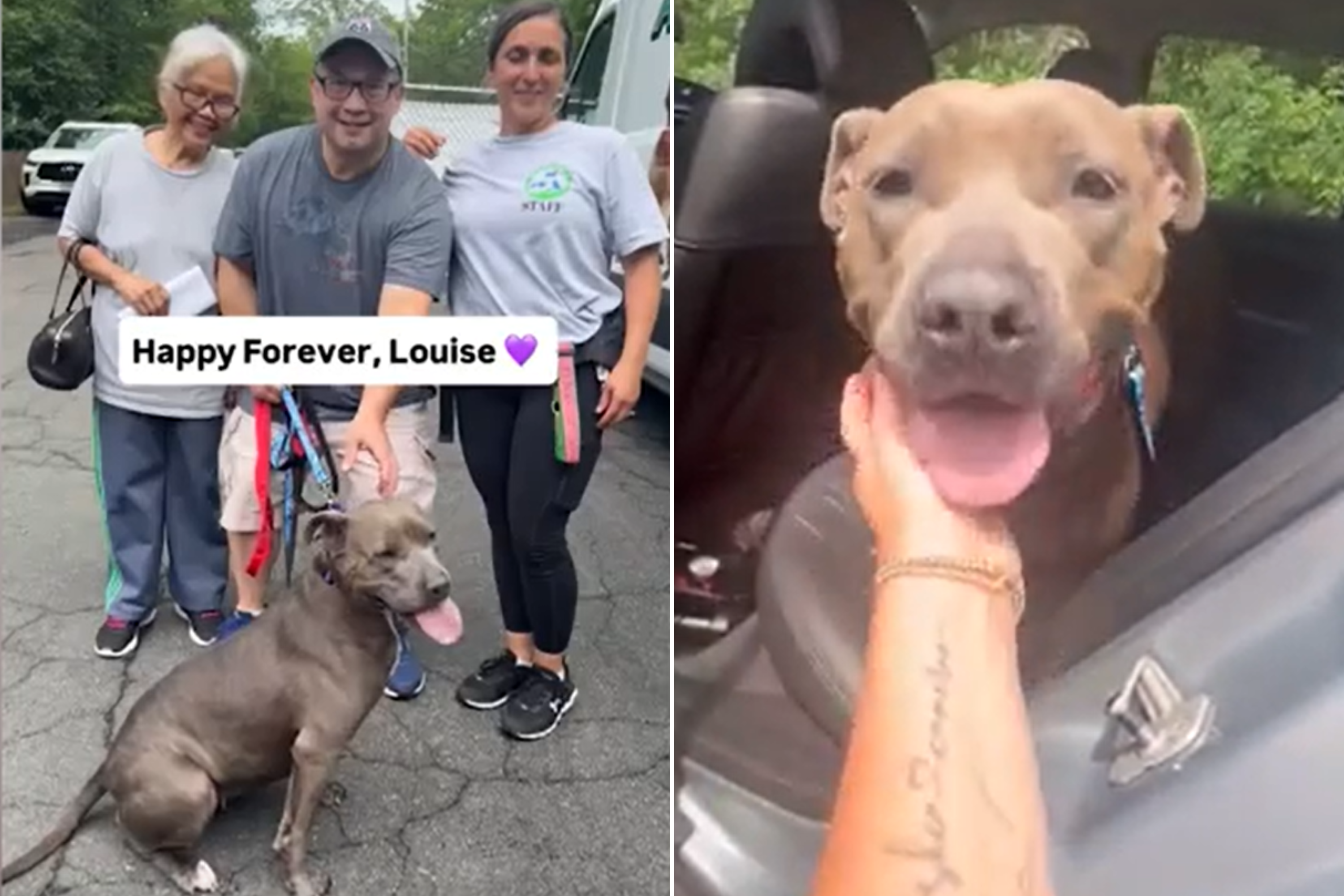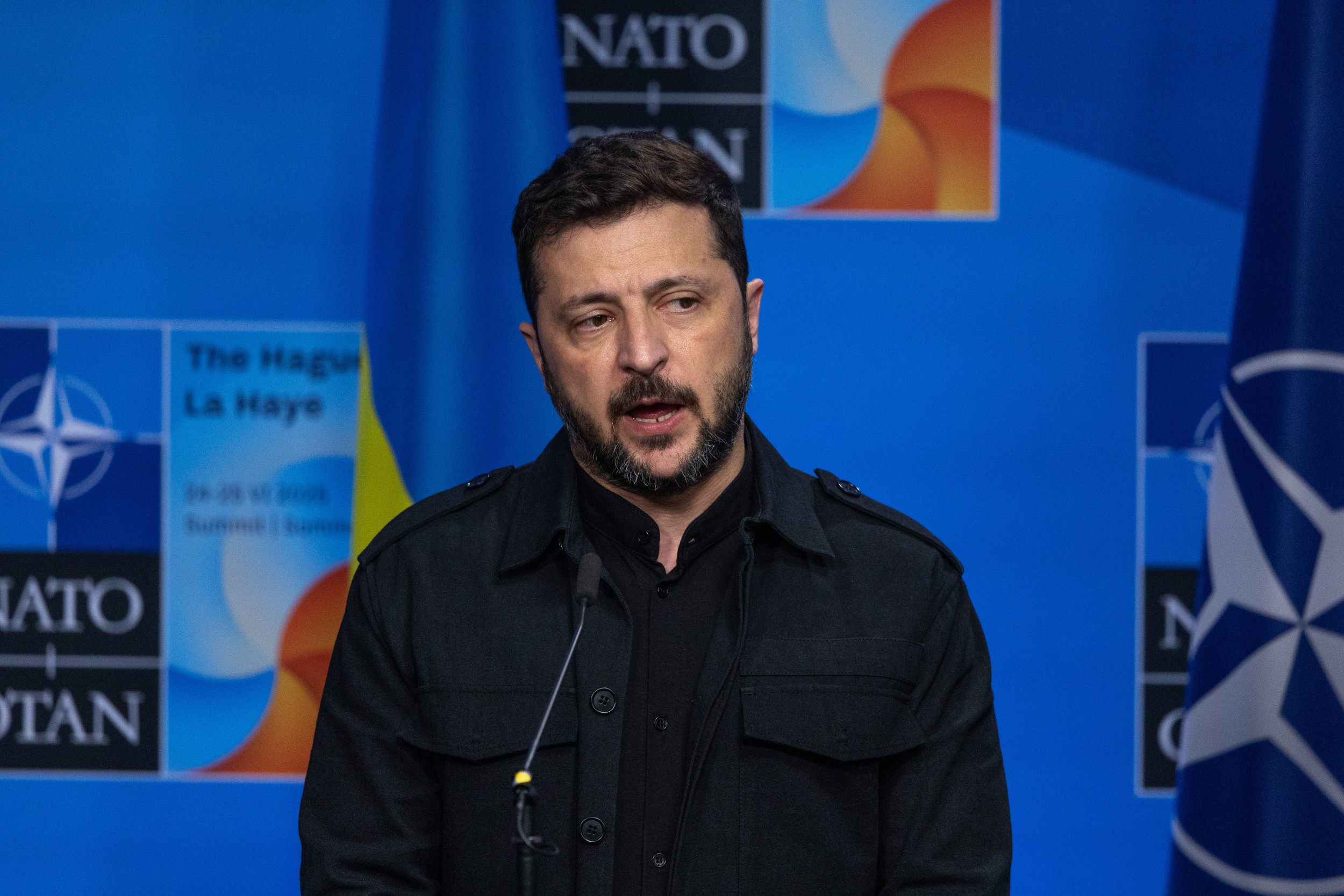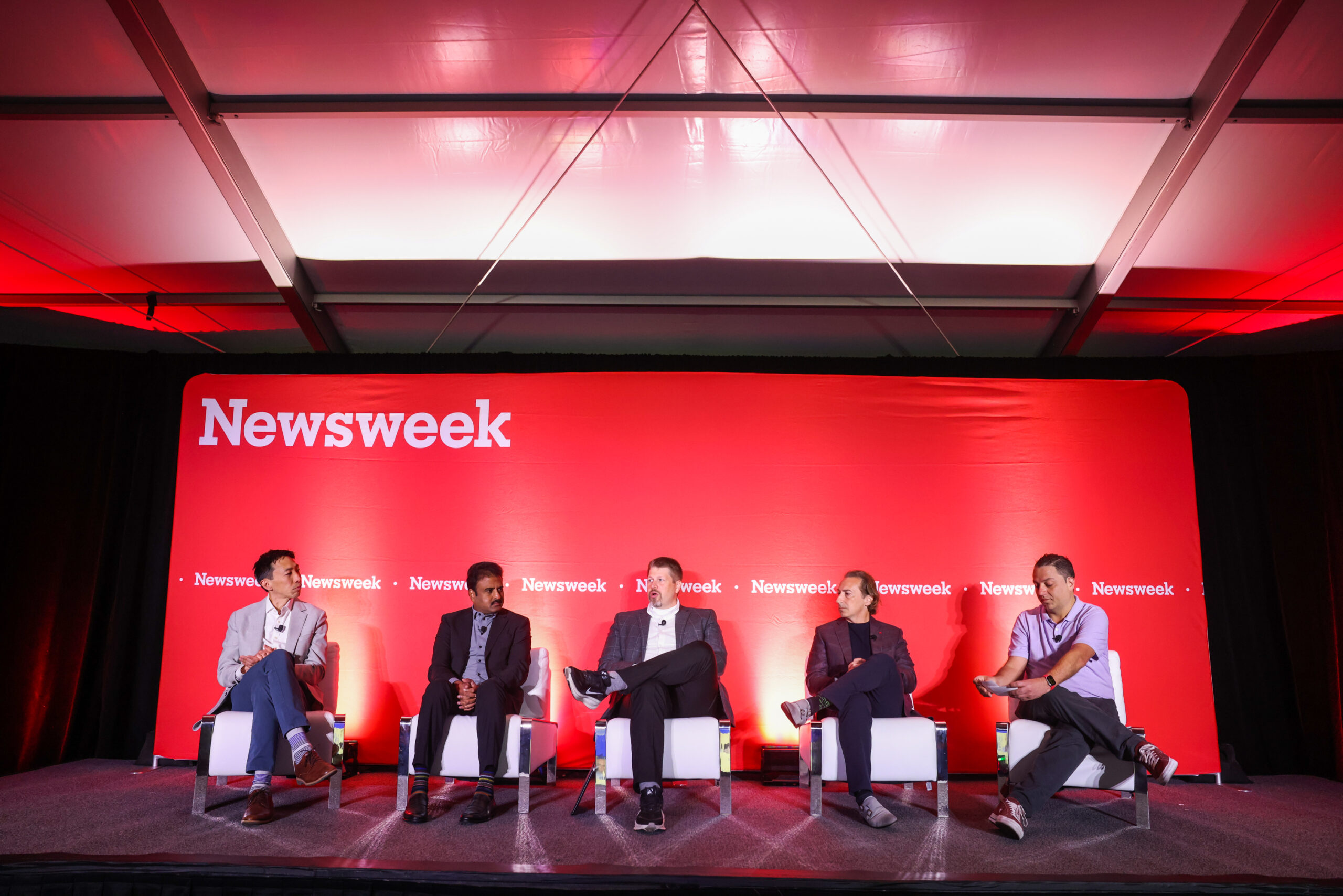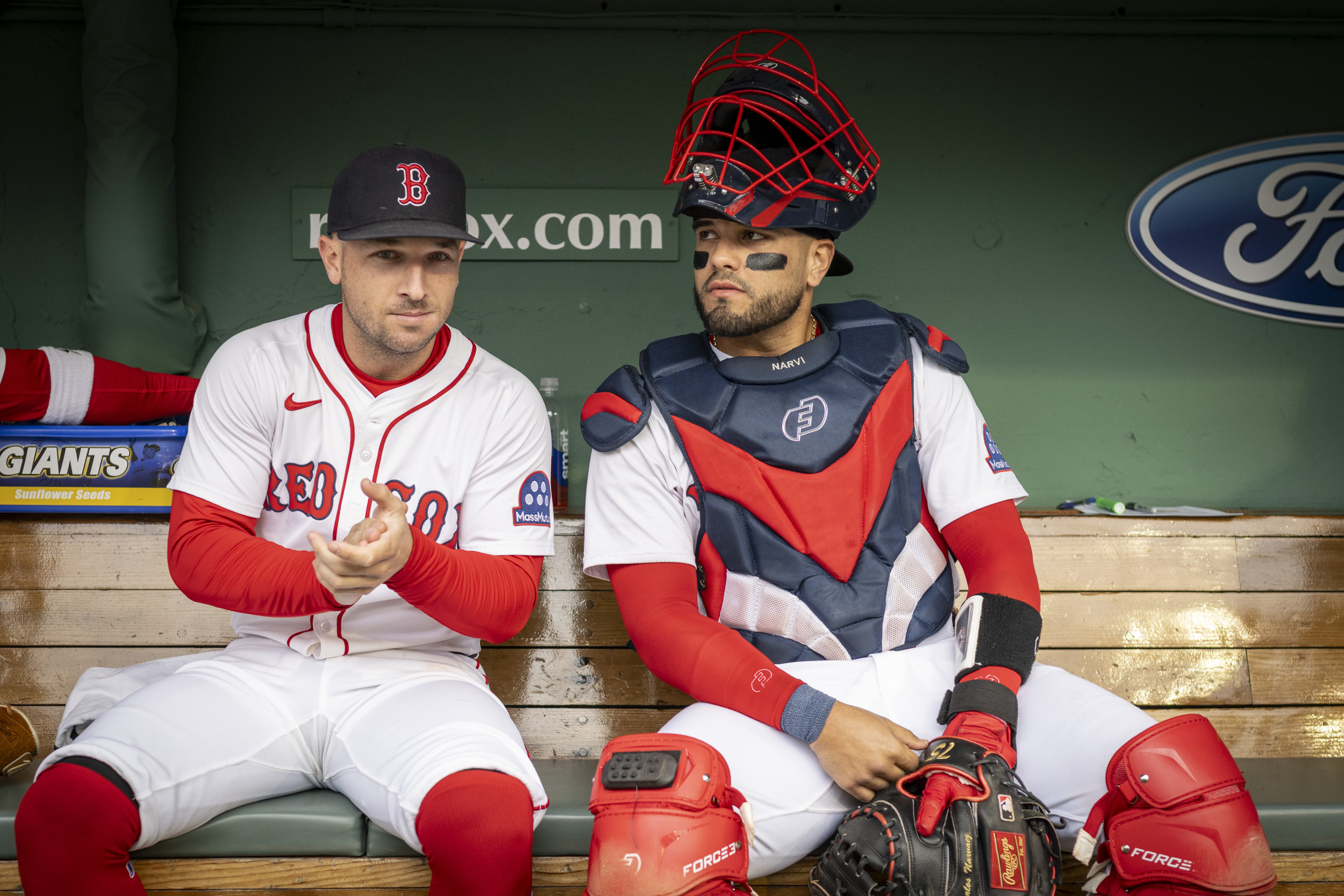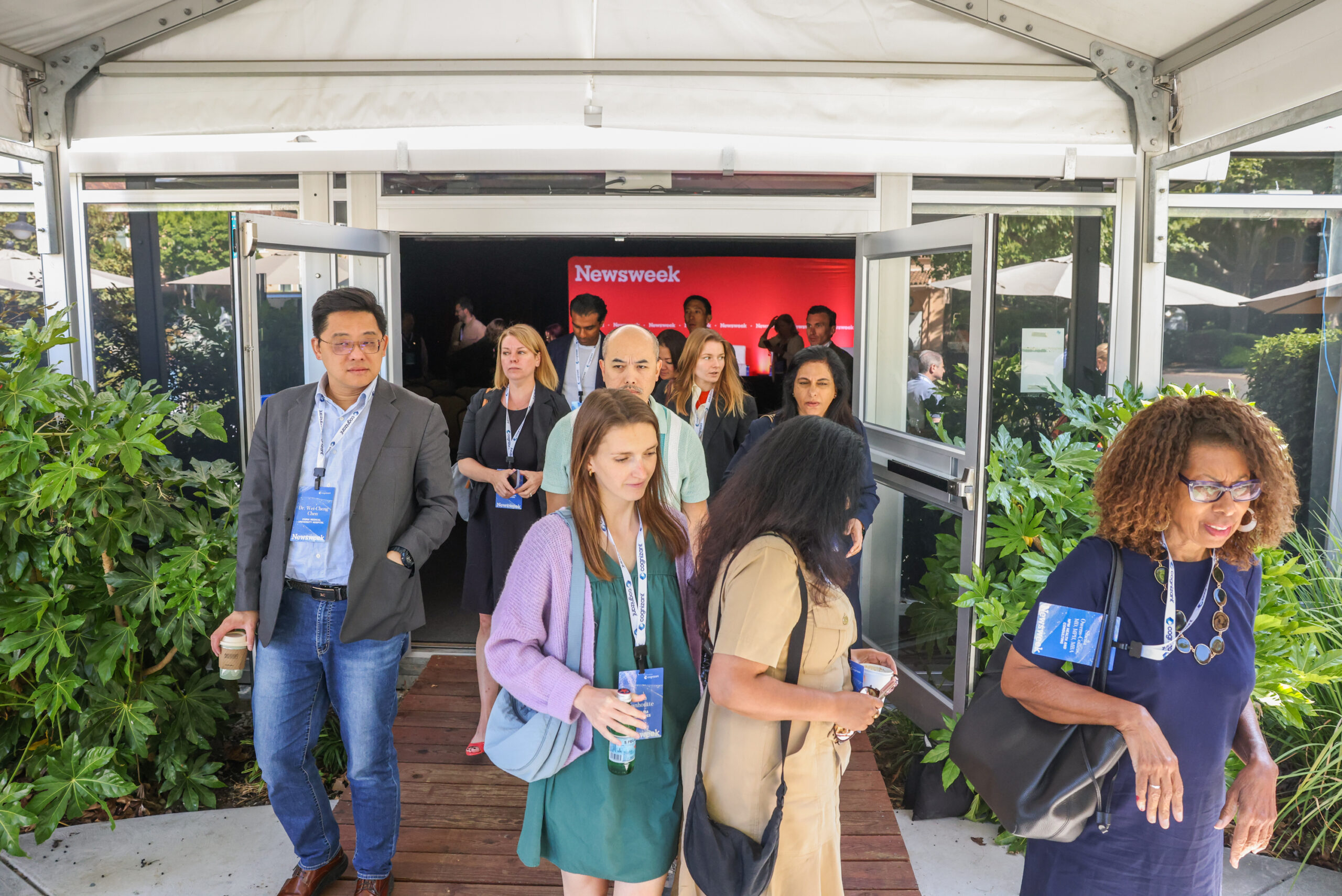
Attendees of Newsweek‘s AI Impact Summit returned for a second day of insightful conversations on Tuesday as speakers offered thought-provoking ideas about artificial intelligence in everything from health care to filmmaking and city planning to weather forecasting.
To kick off the day, industry leaders gathered for breakfast on the lawn of the Fairmont Sonoma Mission Inn & Spa, where organic eggs, Belgian waffles and fresh coffee awaited them.
Daniel Danker, the chief product officer at Instacart, was among the early risers at the venue. Sipping on a hot beverage from the specialty coffee cart, Danker told Newsweek it was important to meet with other leaders at events like the AI Impact Summit because, “We’re all trying to figure out the same things right now.”
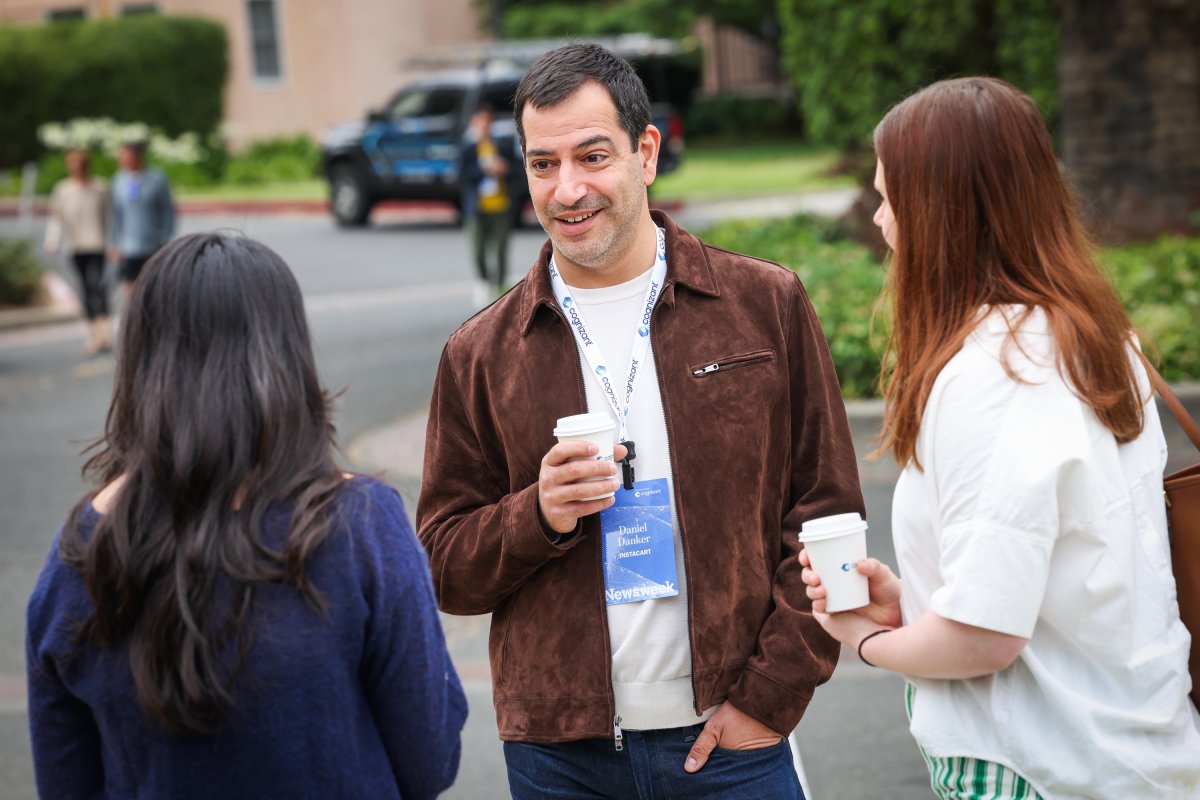
NICK OTTO
“Seeing the different approaches across different companies and different industries is very informative, because the paint is still very wet still,” Danker said. “It’s interesting to see which colors and how it’s setting across different companies in different parts of industry.”
Danker sat down with Marcus Weldon, Newsweek contributing editor and president emeritus of Bell Labs, for a conversation about how Instacart is leveraging AI to “completely tailor the [grocery] store to the shape of your household, dietary needs, brands you like, whether you’re more or less price sensitive, whether you’re more value-oriented.”
Gina Ray, the senior director of corporate marketing, brand and corporate communications at ABBYY, also joined fellow attendees for breakfast on Tuesday, excited for another day of programming. ABBYY was among Newsweek‘s 2025 AI Impact Award winners, taking home the Best Outcomes, Accounting recognition.
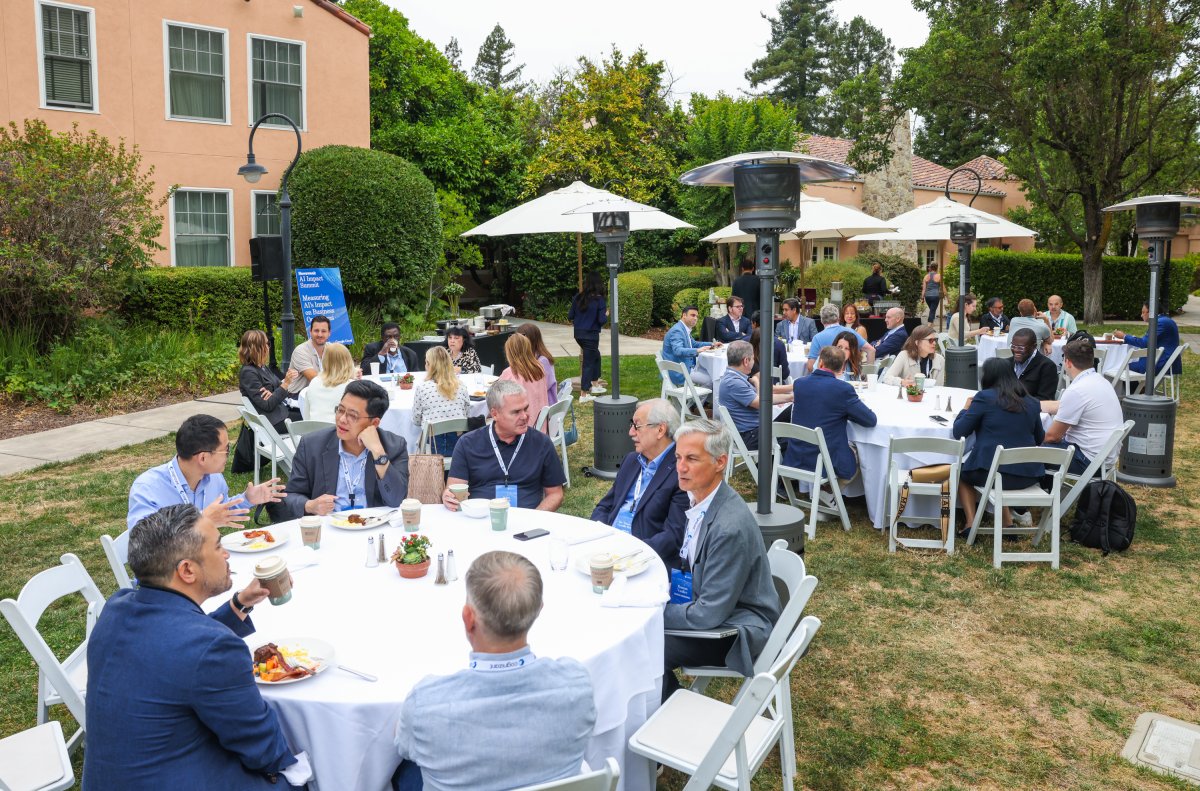
NICK OTTO
Halfway through the morning, attendees exited the pavilion to explore various demonstrations during the AI Intel networking break. Carrying their bright red Newsweek swag bags, many of them took the time to walk around installations from Cognizant, Google Cloud, EVOM AI Piano and Doctronic, among others.
Doctronic’s founders, Matt Pavelle and Dr. Adam Oskowitz, showed attendees how their AI works: Patients can make a telehealth appointment with Doctronic’s AI doctor, who then transcribes notes that patients can take to a human provider.
“Our north star has always been access,” Oskowitz told Newsweek.
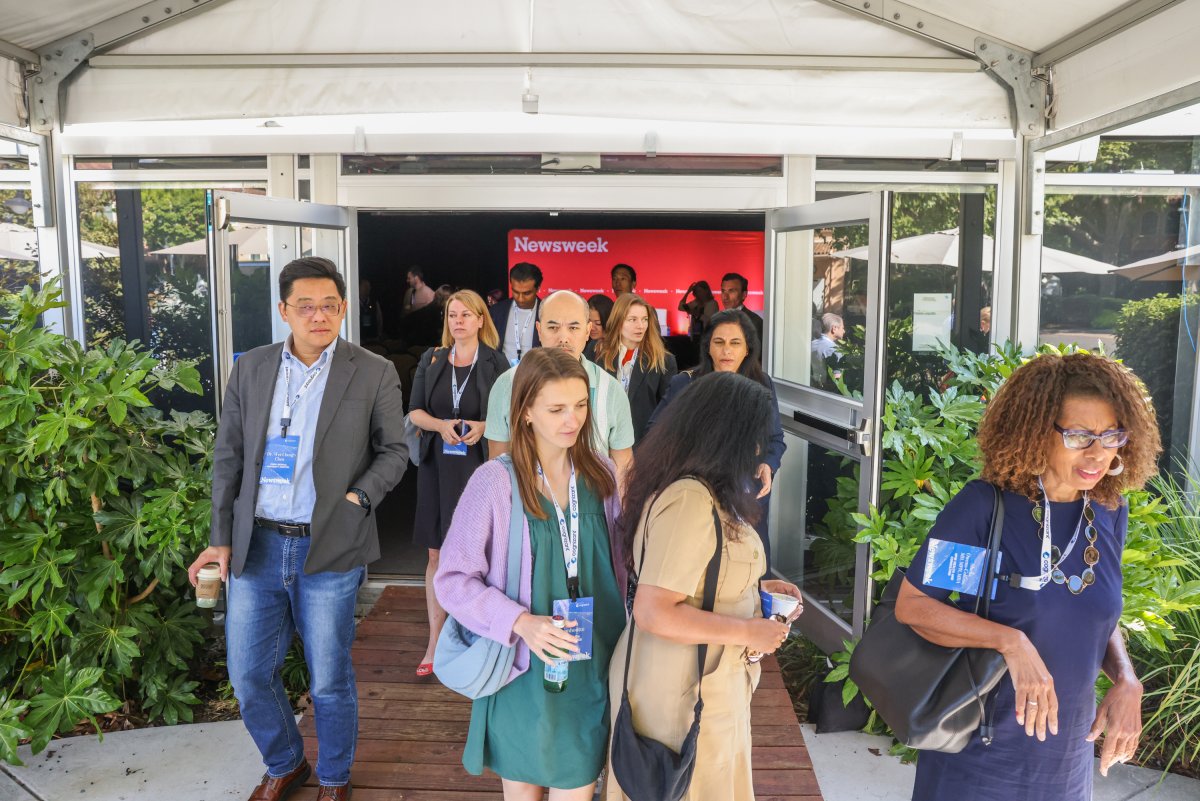
NICK OTTO
He said one of the biggest obstacles is timing. Patients want to know what’s happening to them immediately, not in three weeks or three months when their doctor’s office might finally have appointment availability.
Pavelle chimed in, “Our business model is to try to provide really inexpensive primary care and urgent care, which is obviously useful, and then refer out for specialists.”
“When we launched two years ago, the question was, did people want to talk to an AI doctor?” Pavelle told Newsweek. “The answer was an immediate yes. People just say things, and there’s no embarrassment.”
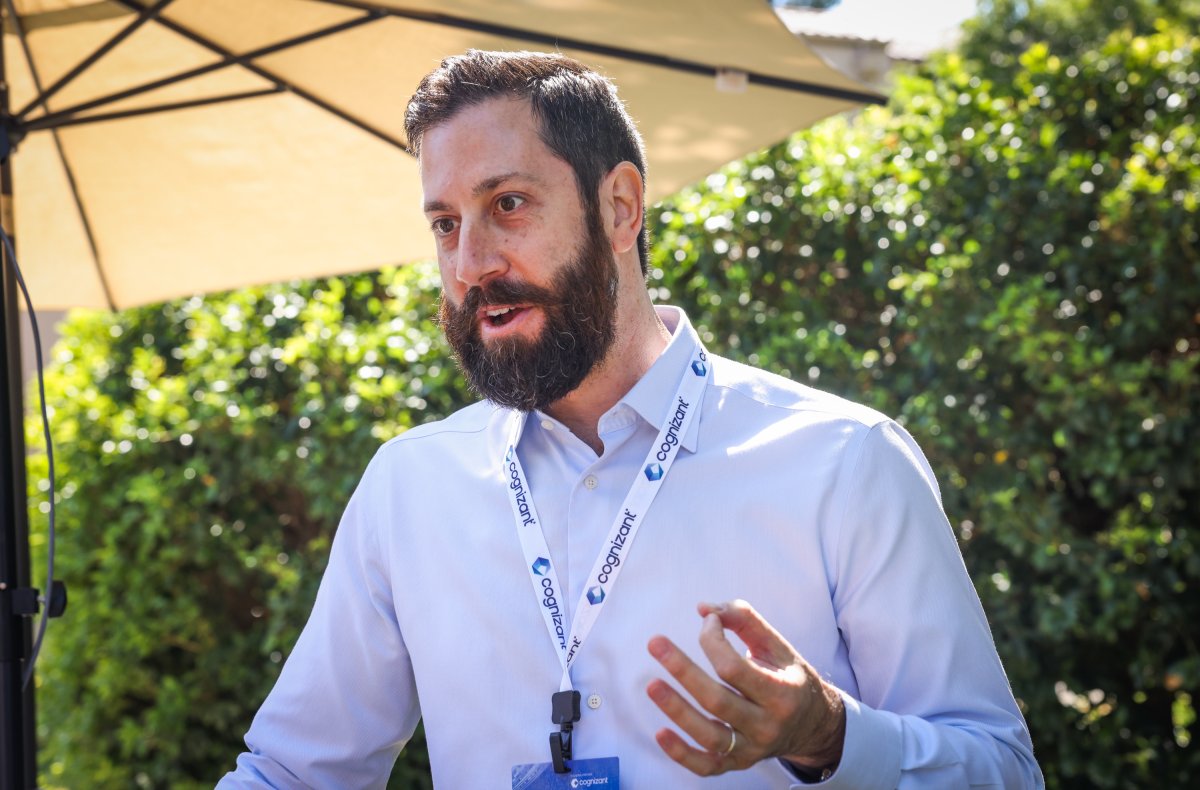
NICK OTTO
By getting around that obstacle, Pavelle suggested that an AI doctor might be able to extract more accurate information from a patient than a real-life doctor because patients might feel less judged and, thus, provide more truthful and genuine answers about their health.
He also reflected on the Newsweek summit, describing Tuesday’s health care panel as “fantastic,” praising the speakers for being “spot on,” and recalling a “great” discussion from yesterday’s industry roundtables.
Tuesday’s roundtable discussions included a conversation on whether organizations should build their AIs in-house or outsource that type of work. Executives across industries—from finance to energy to health care—debated the decision, remarking how building it yourself would foster greater innovation and allow you to create an AI that is more tailored to the needs of your company. On the other hand, buying AI can be faster, more reliable and more cost-effective.
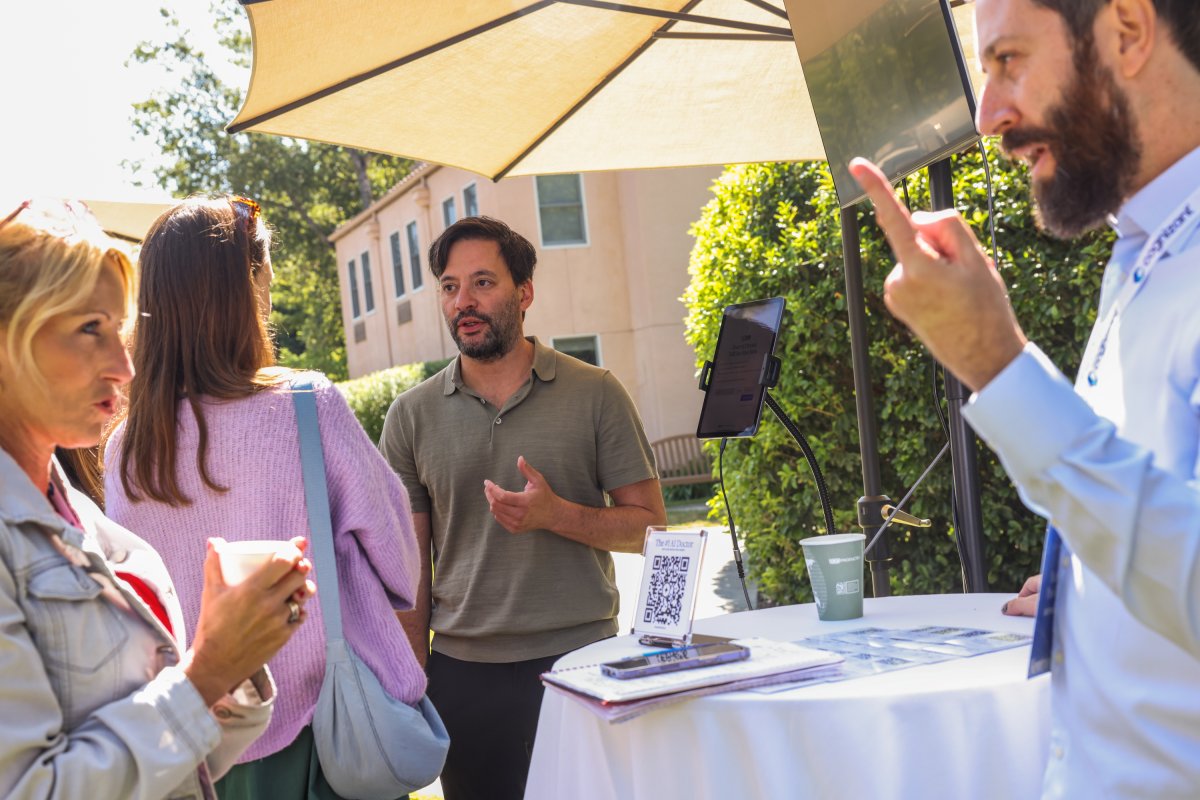
NICK OTTO
The roundtable was led by Vickram Kooblall, the chief information officer and chief information security officer at Scahill Law Group, who told Newsweek he was amazed by the slate of speakers at the summit.
“It’s phenomenal,” Kooblall said as he made his way over to the lunch taco bar from the Kenwood Ballroom.
“The quality of speakers at the conference really surprised me,” he said. “It gives us greater insight into where we’re going to be headed. They’re kind of at the innovation standpoint. They’re the ones creating the path, while we’re following it, creating little adjacent roads outside and coming back into it.”
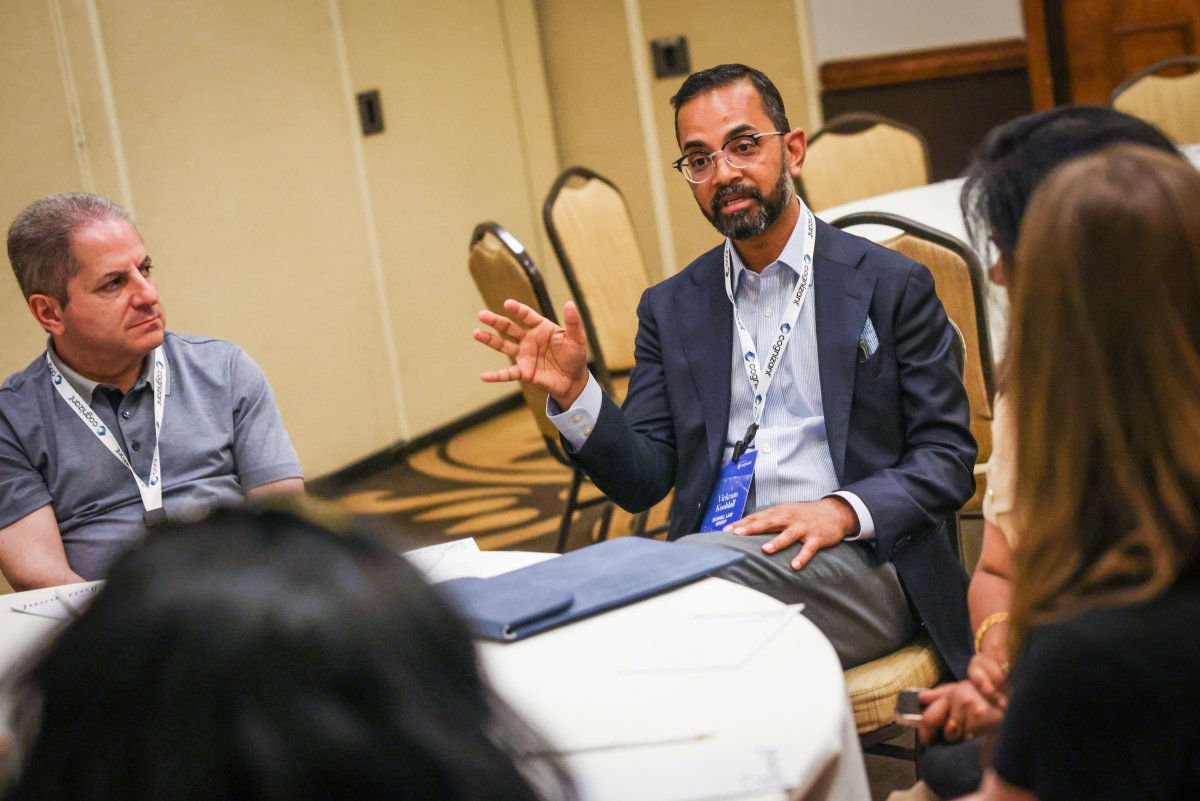
NICK OTTO
Kooblall said he particularly enjoyed hearing from the Cognizant executives who attended the first and second day of the summit, describing their AI work as “an innovation, a solution that I’m really looking for.”
After a tasty lunch, Kooblall joined other attendees on a visit to the St. Francis Winery & Vineyards, where some elegant, fruit-driven wines awaited them.
The guests then returned to the lawn after the wine tour for another networking reception to close out the second day of the summit.
On Wednesday, AI leaders will take the Newsweek stage to discuss the age of the new workflow, returns of investment in the age of AI and how to enhance AI governance and privacy. Check out the full lineup here.
